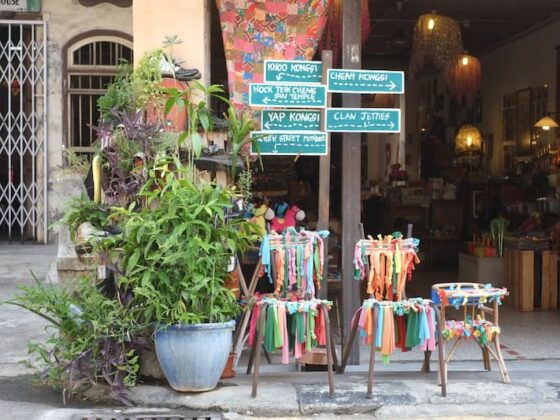There has been an increasing trend in Hong Kong for couples to delay getting married or not get married at all in most recent years. Statistics show that about 33% of males and 28.0% of females in Hong Kong had never been married and that the median ages at first marriage for men and women have increased from 29 y.o. and 26 y.o. in 1991 to 32 y.o. and 30 y.o. respectively, as data from the most recent census have shown. Moreover, Mainland-Hong Kong cross-border marriages increased significantly since 1991, which is understandable given the growing integration with Mainland China, especially within the Pearl River Delta area. The number of divorces increased tremendously, with the divorce rate at 3.1 per 1 000 population in recent years, more than double of that in the ‘90s.
The right to marry is a constitutional right provided by Article 37 of the Basic Law which states that “the freedom of marriage of Hong Kong residents and their right to raise a family freely shall be protected by law”.
The minimum age for marriage in Hong Kong is 16. However, if either party is over 16, but still under 21, and is not a widow or widower, written consent to the marriage is required, either by a parent or a guardian (or a judge if there is no other more appropriate person). Parties are free to marry whoever they choose as long as they are both single at the time of the marriage and of the opposite sex.
Since October 1971, a couple in Hong Kong can only validly marry in accordance with the Marriage Ordinance. This generally means that it must be a voluntary union for life of one man with one woman to the exclusion of all others and that the marriage ceremony must be carried out at one of the Marriage Registries or licensed places of worship in Hong Kong. A marriage celebrated by a civil celebrant can take place at any place in Hong Kong, excluding the office of the Registrar or a licensed place of worship.
Same-sex marriage and civil unions
Same-sex marriage or civil unions are not currently recognised in Hong Kong. In June 2009, the Hong Kong Government extended limited recognition and protection to cohabitating same-sex couples in its Domestic Violence Ordinance, however this can be barely considered as a progress within the larger scope of LGBT+ rights and general advancement of civil rights in Hong Kong.
Neither same sex marriage nor civil partnership registered inside or outside Hong Kong are recognised by the Law of Hong Kong. However, many Hong Kong residents hold also British National Overseas passports. By virtue of the passage of Civil Partnership (Registration Abroad and Certificates) Order 2005 in the UK, all British nationals – including British Nationals Overseas – are allowed to register civil partnerships with a limited number of British consulates or embassies abroad. Hence, LGBT couples, with either one of the couple having a British national status, enjoy the right to register civil partnerships with British consulates in 22 different countries.
However, the British Consulate-General in Hong Kong refrains from providing such service to British nationals.
Arranging a civil partnership registration with a British consulate will generally take at least a month and must be done in person in the country where the consulate is located. Those whose British National Overseas passports have expired or who no longer hold a valid passport need to apply for renewal before arranging a civil partnership registration with a British consulate.
A 2017 University of Hong Kong poll found that 50.4% of respondents supported same-sex marriage, so while the society is getting more accepting about granting such civil right to all couples, the local Government is still lagging behind.
At the closing question and answer session of the Legislative Council in July, Chief Executive Carrie Lam said though the government respected the court’s ruling, the QT case was not a challenge to Hong Kong’s Marriage Ordinance and concerned only the city’s immigration policy. She added that “same-sex marriage was an issue that lacked societal consensus”.
The QT case was launched by a British lesbian who fought to have her civil union recognised in Hong Kong after her partner moved to the city for work. The Court of Final Appeal ruled that immigration authorities were required to issue spousal visas to same-sex partners and made such change in Immigration policy possible.
In November 2018 a proposal by Hong Kong’s only openly gay People Power lawmaker Raymond Chan Chi-chuen that the government studies the idea of creating legal unions for homosexual couples has been voted down 27 to 24 by the city’s legislature after a heated debate.
Once again and sadly, the government reiterated that the vote reflected the diverse range of opinions in the city, and that any changes to the institution of marriage would have a profound influence on society.
The situation for transgender and transsexual individuals
In 2013, Hong Kong’s High Court ruled that a transgender woman can marry her partner and told the government that they had one year to draft a law that allows for post-operation transsexual or transgender individuals to marry. In spring of 2014, it was announced that though the law had not been completed, transgender citizens could start marrying in July of the same year. Some human rights activists have expressed their discontent with the provision that a person must be fully operated in order to receive a marriage license. Some have stated that the delay of the final draft is a positive thing since the current law has “lots of holes and ambiguity”.
Foreign marriage
A foreign marriage celebrated outside of Hong Kong in accordance with the law in force at the time and in the place where the marriage was performed is generally recognized in Hong Kong as a valid marriage, putting it on a similar level as a marriage registered in Hong Kong. If the marriage was conducted and registered overseas, the marriage itself will not be governed by Hong Kong Law. However, if the parties to the marriage choose to have a divorce in Hong Kong, they may do so (if certain conditions are satisfied) and the laws of Hong Kong in relation to the divorce proceedings will apply.
Customary marriage
Apart from registered marriages and foreign marriages, the law also recognizes as valid two other types of customary marriage if they were conducted in Hong Kong before 7 October 1971.
The first type is a Chinese “customary marriage”. It is a marriage celebrated in accordance with the traditional Chinese customs that were accepted at the time of the marriage, either in the part of Hong Kong where the marriage took place, or in the parties’ family place of origin, usually their native place in China.
The other type is called a modern marriage, which is where an unmarried man and woman, neither of whom is less than 16 years of age, went through an open ceremony in the presence of at least two witnesses in such manner that a reasonable person would think that a marriage has been celebrated.
It is important to note that the ceremony has to be ‘open’ in the sense that it must have been known and could have been seen by all those who were not particularly invited to participate in the ceremony itself. This requirement would be satisfied by, for example, leaving the door of the room in which the ceremony took place open. This type of marriage is also called “validated marriage”.
Parties to Chinese customary marriages and modern marriages can have the marriage post-registered at the Marriage Registry to “legalise” the marriage and allow it to be legally valid, enforceable and binding.
Evidence needs to be produced indicating the customary or validated marriage was celebrated in Hong Kong before 7 October 1971. Two witnesses to the marriage are required to give statutory declarations to confirm that they were present during the wedding ceremony. These documents need to be submitted to the Marriage Registration and Records office. Once the application is approved by the Registry, the customary or validated marriage is registered.
If one party refuses to have the marriage registered after it has taken place, the other party may apply to the District Court for a declaration that such a marriage exists and thereafter that party can post-register it unilaterally.
Our team at Hugill & Ip has extensive experience in dealing with Hong Kong family laws – so kindly get in touch with us to find out how we can help.
This article is for information purposes only. Its contents do not constitute legal advice and readers should not regard this article as a substitute for detailed advice in individual instances.




